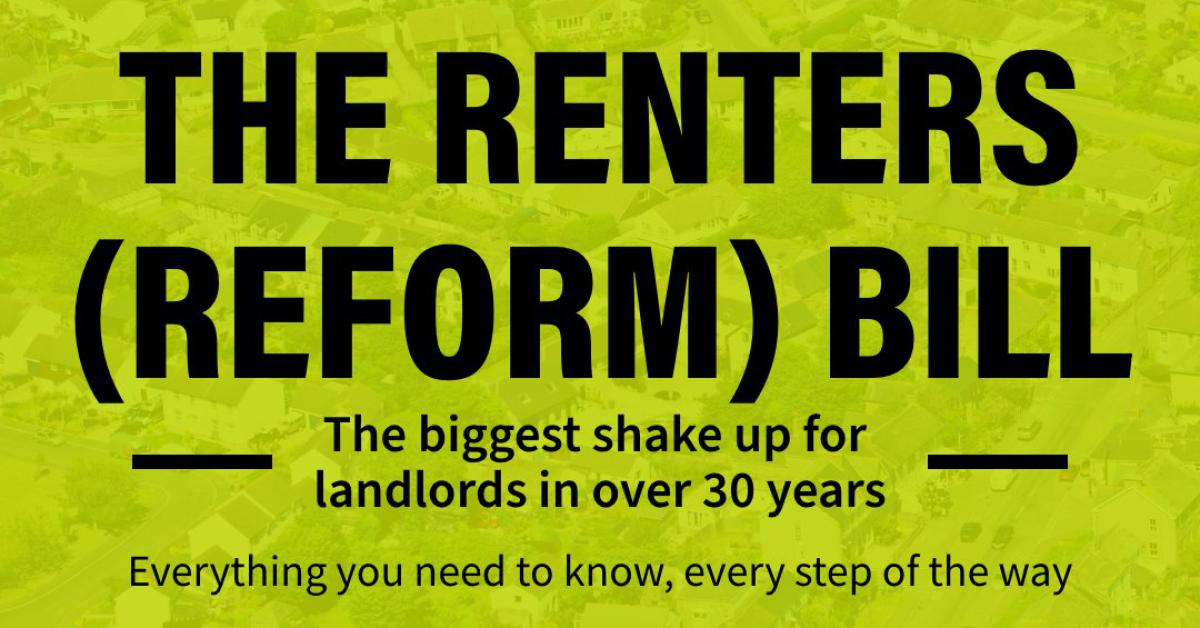

Vital amendments still needed as committee stage ends
Amendments tabled to the Renters (Reform) Bill during committee stage were debated for the final time this week. Samuel Leeson from the public affairs team explores the key takeaways for landlords and discusses what happens next as the Bill heads into report stage.
Over the past fortnight, the Renters (Reform) Bill has been progressing through committee stage, with more than 270 proposed changes put forward.
Primarily introduced by the Government, a series of important amendments have been tabled and are now accepted as part of the legislation that landlords should be aware of.
Key Government-led amendments to the Bill
Despite the Government's initial pledge to ban discriminatory advertising practices and implement a Decent Homes Standard in the private rented sector (PRS), the first version of the Bill, excluded any reference to these commitments.
As anticipated, amendments to formally incorporate both promises into the legislation were tabled by the Government and accepted by the Committee.
Meanwhile, the amendment concerning the Decent Homes Standard grants the Government the flexibility to define the details of the new regulations at a later date.
Jacob Young MP, the Levelling Up Minister and the Government's Bill Committee spokesperson, confirmed that he and his Department are currently working on a proposed standard and will set out details in due course.
Other significant amendments accepted include the Government's decision to hold superior landlords accountable for rent repayment orders when rent-to-rent companies fail to comply with their legal requirements, overturning a landmark ruling by the Supreme Court earlier this year.
The amendment will mean that landlords could face fines even in situations where a rent-to-rent company has, unbeknownst to the landlord, been instructed by tenants to unlawfully sublet a property.
NRLA campaign wins
Among the myriad amendments proposed to the Bill, there were clear wins for the NRLA .
Notably he reaffirmed the Government's commitment to making significant improvements to the justice system explaining; 'representatives and businesses tell us they have concerns about court delays', adding 'we cannot simply ignore that'.
This echoes concerns NRLA Chief Executive, Ben Beadle, raised during evidence sessions convened by the Committee.
The Minister dismissed amendments that aimed to extend notice periods and the time before a notice can be served as well as increase the evidence requirements for certain grounds and impose limits on in-tenancy rent rises.
In rejecting these, he stressed the importance of landlords having confidence that they can retain possession of their properties when there is just cause to do so and in a timely manner.
After an extensive campaign by the NRLA, an amendment introducing a new ground for possession enabling student HMO landlords to regain control of their properties in alignment with the academic year was accepted.
While the proposed ground is welcomed for HMO landlords, the NRLA is proposing the ground should apply whenever there is a household of full-time students occupying the property - including one or two-person student properties.
Vital amendments still needed
While welcoming these changes, the NRLA believes the Bill, as it stands, still falls short of commanding the confidence of responsible landlords and the wider sector.
This issue stems, in part, from the lack of security provided by the Bill to ensure tenants will remain in a property for more than two months. Without measures to establish an initial minimum tenancy period, landlords may be exposed to frequent reletting costs and may breach some buy-to-let lending conditions.
The way the proposed reforms are implemented will also play a significant role in shaping landlords' perceptions of the Bill. Currently, uncertainty looms over implementation dates and the transition process for existing tenancies into the new tenancy regime.
Assurances are needed to ensure that landlords have sufficient time to adapt to the proposed reforms.
Moreover, the Government's proposed amendment to hold superior landlords accountable for illegal subletting practices by rent-to-rent companies unfairly penalises landlords who don't know their properties are being let in this way and needs to be reassessed.
What happens next?
The Bill will now advance to the report stage. During this period, all MPs will have the chance to propose and deliberate on additional amendments to the legislation in the Commons.
Although there is no fixed time-frame between the end of committee stage and report stage, we anticipate the legislation to be considered further before the Christmas break.
More information
-
To access the NRLA’s Renters (Reform) Bill Hub, which provides all the information you need to know, please click here.
-
For details on how the Renters (Reform) Bill will become law, please click here.
-
If you would like to read the transcripts from all of the Renters (Reform) Bill Committee sessions, please click here.
-
To listen to the latest episode of NRLA podcast Listen Up Landlords - which addressed the Renters (Reform) Bill - please click here.

